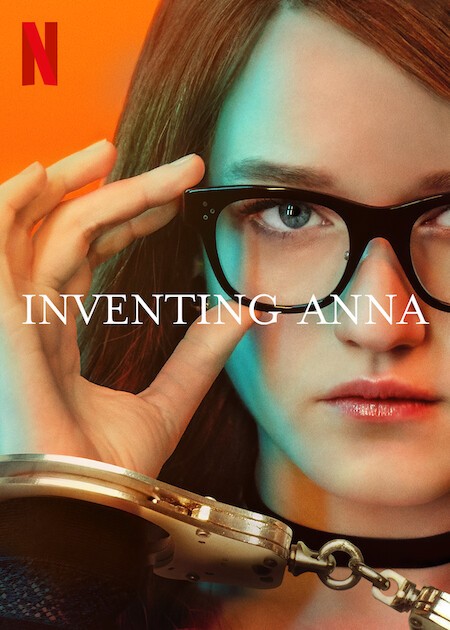
I’m late to the party. But then when it comes to television shows, I usually am. I like to wait the requisite amount of time to ensure they don’t cancel a show just when I’m beginning to enjoy it. Not to mention I’m incredibly fussy about what I give my time to on the screen.
And so it was with some trepidation that I started to watch the Netflix show Inventing Anna. What can I say, I was bored, my husband was away for a week and it was late fall: the time of year when it gets melodramatically dark at 4:30 pm and stays dark until 8 am the next day in our corner of the Pacific Northwest. I don’t know if it was the lack of obvious political commentary (that came later and annoyingly often, breaking into my willing suspension of disbelief until I rolled my eyes) or the way Julia Garner said, “Why do you look poo-uh?” but I was hooked.
I watched it beginning to end in less than a week.
After binge watching the show, I reviewed it quickly for my Facebook friends. Here’s a screenshot of what I wrote.

I did that partially because I had talked it up on day one. At day three of the binge, I had begun to worry the show was headed in a direction I would probably not appreciate. By day four, I retraced my previous enthusiasm and buried deep into the guilt. I had begun to see through the glitz. I did not like what I saw, or at the time, thought I saw.
Here’s what I did like about it: I liked how they unraveled the plot like a mystery. That was exceptionally well done. I loved Julia Garner.
Here’s what I did not like: everything else.
Halfway through the show, when that uneasy feeling was beginning to settle on me like a shroud, I googled Anna “Delvey” Sorokin. I did not like what I found.
After the show was over, I was still craving my next Anna hit. As you can probably tell, I tend to get a little obsessed. But that’s the beauty of these shows and that’s why I’m sad. Inventing Anna really was done well; if only, if only all that talent hadn’t been used in the way it was.
So I headed over to Amazon and started listening to My Friend Anna, written and read by Rachel deLoache Williams. Oh yeah, that Rachel. You know, the terrible woman who takes advantage of Anna and then abandons her when she’s in prison? The terrible friend who runs away when Neff yells at her? Why would I want to know her part of the story?
Why, indeed.
The picture that emerged from her book was completely different. And it made me dig deeper. I will say this: the show made a sleuth out of me. I found out that the reason the producers had made Rachel appear as such a despicable character was because Netflix paid both Anna and Neff to tell their story, but Rachel had signed a deal with HBO. Many details in the show had been unapologetically changed and straight out created to put Neff and Anna in the best possible light and perhaps because every story needs a bad guy, Rachel took the hit.
Yes, yes, we need drama. Of course, some details have to change. It helps make the show interesting. They never claimed it was a documentary. Every episode began with a reminder that everything is true, except the stuff that’s completely made up. However, you cannot use real people, real names and real events that occurred to garner sympathy for Anna (and don’t even try tell me they didn’t) and then ruin someone’s reputation. Or can you? Isn’t that called defamation of character? The show had plenty of that.
At last, I read that Rachel Williams has sued Netflix for defamation. I sincerely hope she wins.
I highly recommend you watch the show, though. And also that you read Rachel’s book. Because it does bring up some questions – important ones, I’d say. How much should you bend the truth to make something interesting? Is just slapping a disclaimer on something enough? And also, if you met a con artist, would you recognize him or her or be taken in?
As far as I’m concerned, while watching the show, we find ourselves in the position of the real Rachel Williams: taken in by the story and the glamor only to realize it’s hollow and we’ve been sold a bill of goods.